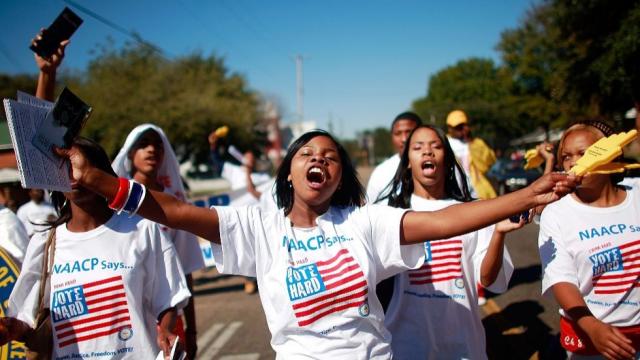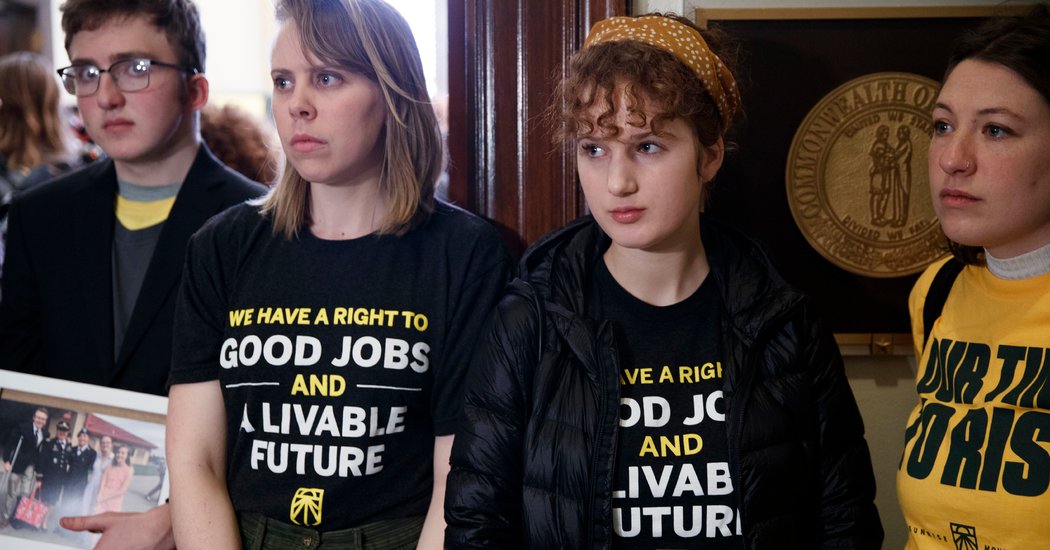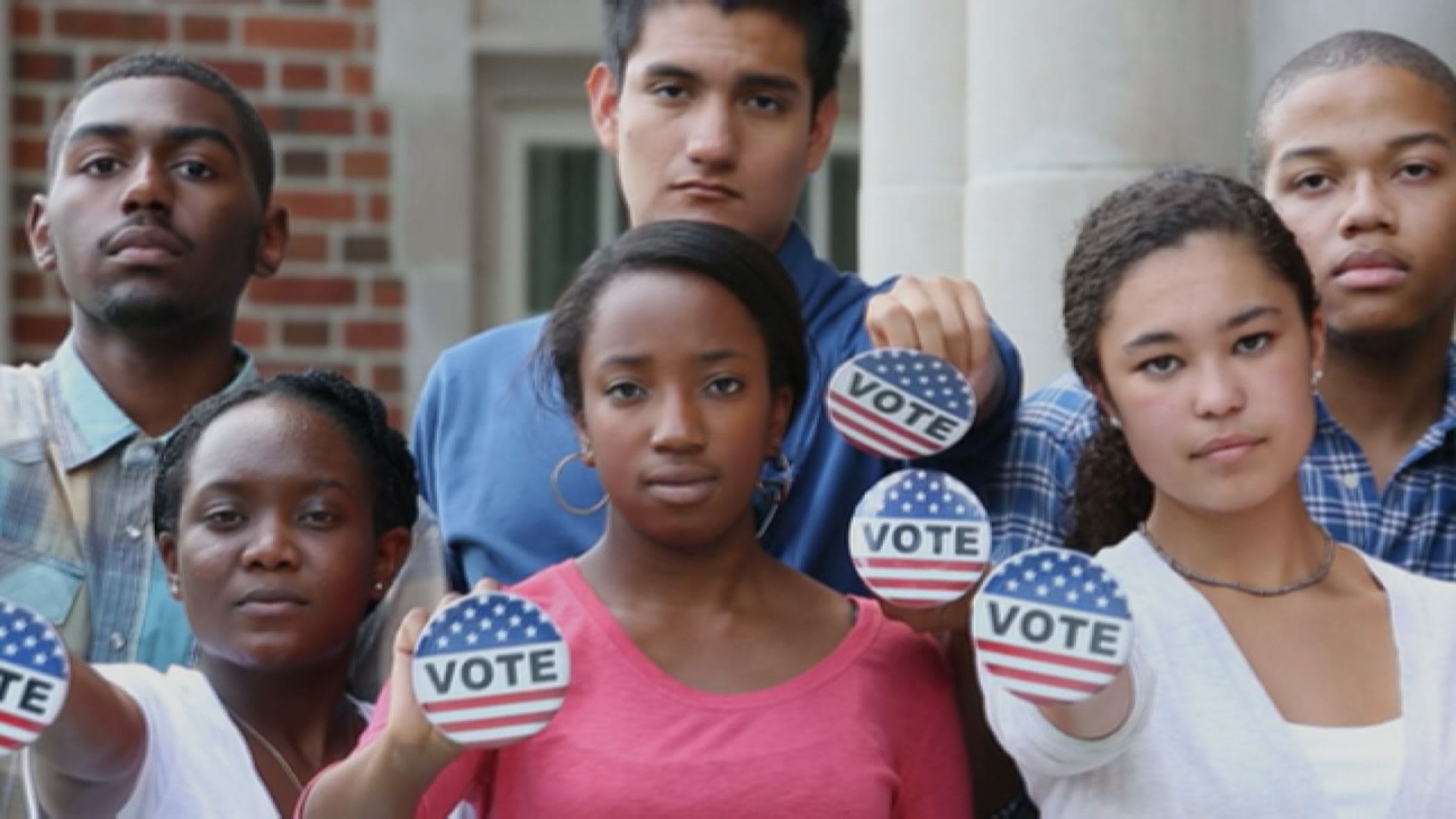
Despite this being an off-election year, voting rights organizations are quickly mobilizing to expand voting access, ensure voting rights and educate citizens on their age-old civic responsibility.
Now, in what may provide a shakeup to the 2020 elections, a recent poll confirmed that a majority of young Americans want to "reform of replace" the current voting system altogether.
The poll was released by Every Vote Counts, a non-partisan organization dedicated to expanding voting rights, especially among students.
Despite historical trends and perceptions among older voters, young people between the ages 18-29 actually increased their voting participation in the 2018 midterms by almost 80 percent compared with the 2014 midterms. It was the largest percentage increase among any age group.
The takeaway? “The status quo isn’t working,” Campbell Streator, program director of Every Vote Counts, told Occupy.com.
More than 53 percent of eligible voters turned out for the midterm elections, higher than any other year since 1978, according to the U.S. Census Bureau. Some groups, like young voters, saw significant increases. But other significant increases came from Hispanics and Asians.
Some notable ballot measures designed to expand voting rights also made news after they were approved by voters, like Florida’s Amendment 4, which granted voting rights to most ex-felons totaling an estimated 1.4 million people.
But in the wake of the record voter turnout and approved ballot measures expanding voting access and rights, some state legislatures have also sought to reign in this expansion.
In Texas, the state senate passed a bill increasing criminal penalties against ineligible voters casting ballots, and allowed for greater scrutiny from poll watchers and the state’s attorney general. That bill ultimately died as opposition against it rose from many groups, including election officials.
In Florida, the Republican-majority state legislature recently passed a law requiring ex-felons pay all court costs and fees before getting their right to vote re-instated. Republican Gov. Rick Santos signed the bill into law.
The ACLU has decried the changes, stating: “By passing legislation that undermines Amendment 4, legislators have blatantly ignored the will of 5.1 million Florida voters by restricting the eligibility to vote for thousands of Floridians who have earned their second chance.”
Despite some setbacks for voting rights advocates, a number of states have managed to expand voting access. New York passed a series of laws earlier this year that expanded early voting and allowed for same day registration.
New Hampshire passed a series of laws making voting access easier, following protests at the state capitol, in May, when 10 students were arrested after refusing to leave the offices of Gov. Chris Sununu and Secretary of State Bill Gardner.
“Most people think of three challenges when it comes to voting: a poll tax on students, gerrymandering and not having no-fault absentee voting," Councilor Andru Volinsky, a Democrat in Concord, Mass., told the students.
“The fourth problem is the arrogance of people who won’t listen to you. So thanks for being here and standing up not only for your voting rights but for the voting rights of others,” he said.
Another feature of recent efforts to reduce voting rights is gerrymandering, a process of choosing your voters that goes back to the beginnings of the country – and which has garnered fresh attention in particular in North Carolina and Maryland.
Both state legislatures, one Republican, one Democratic, redrew voting districts to solidify party control. Court cases challenging these gerrymandering laws have been argued before the Supreme Court, with the court expected to announce a decision later this month.
Aside from the Constitutional and legalistic determinations of gerrymandering, one of the undisputed effects is that it discourages voter turnout, as voters justifiably feel their votes don’t count in districts that more or less all vote the same. Preventing gerrymandering laws from passing state legislatures is a target for groups like EVC.
“In chapters where our students are in states where gerrymandering is an issue, we’ve gotten involved with organizations involved with that,” Streator said. “We’re trying to get young people engaged and show students are excited to get involved.”
One of the ways proponents of voting rights and youth voter drives help get students involved is by targeting them even before they're eligible to vote. A majority of the students in the EVC poll noted that schools are not properly preparing students to become active participants in government once they turn 18.
In fact, a majority of states in the last year have sought to address the issue, in some cases requiring a class that teaches students explicitly about the subject, or forcing them to pass a test to graduate. The measures vary by state and the effects of the legislation are too early to determine, but have come in response to the widespread misinformation that was disseminated on social media during the 2016 election.
The Every Vote Counts survey shows that young voters, contrary to stereotype, are informed, involved and want to see changes. But, Streator explains, young voters aren’t looking for a revolution.
One recent reform of the status quo is taking place in Maine. There, voters can rank their candidates in what is known as rank choice voting. If there are six candidates, voters rank the candidates 1-6. If one of the candidate has more than 50 percent of first choice candidates, that candidate wins. If no candidate has a majority, then the candidate with the least first choice votes is eliminated. The second round adds the second choices to the remaining candidates, and whichever of the remaining candidates has a majority, wins. (The process, which is repeated until one candidate has a majority, is intended to eliminate the possibility of a candidate winning an office without support from a majority of voters.)
In the least, the recent poll indicates that young voters are energized and mobilized six months after the midterms. Coupled with historic trends of higher voter turnout for presidential election years compared with midterms, young voters could play a significant role in shaking up not just the White House, but Congress and state governments as well.
















